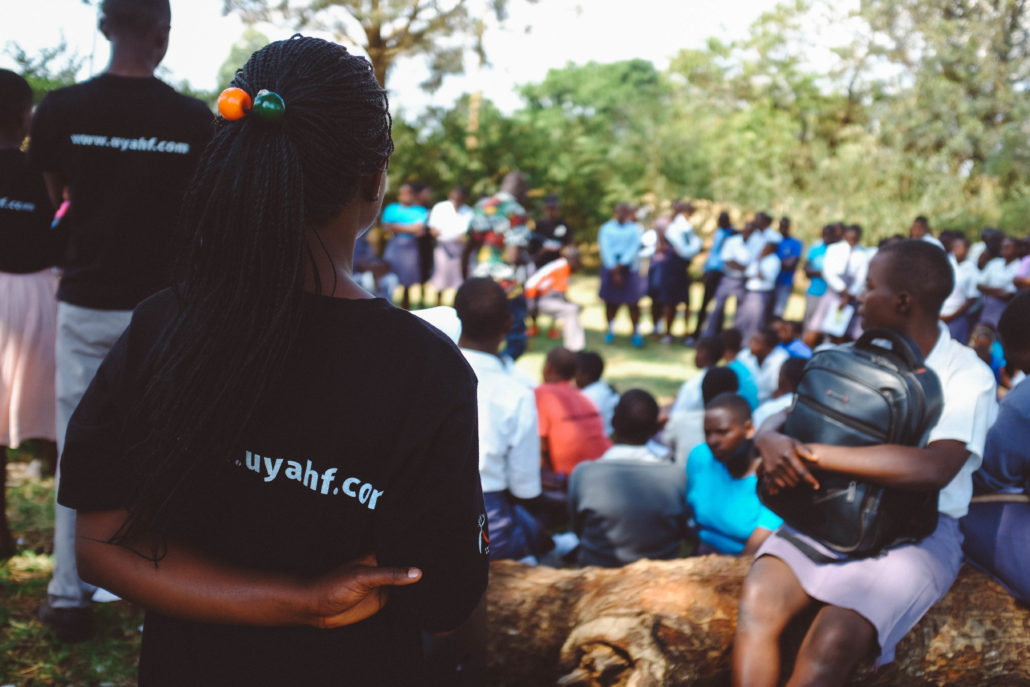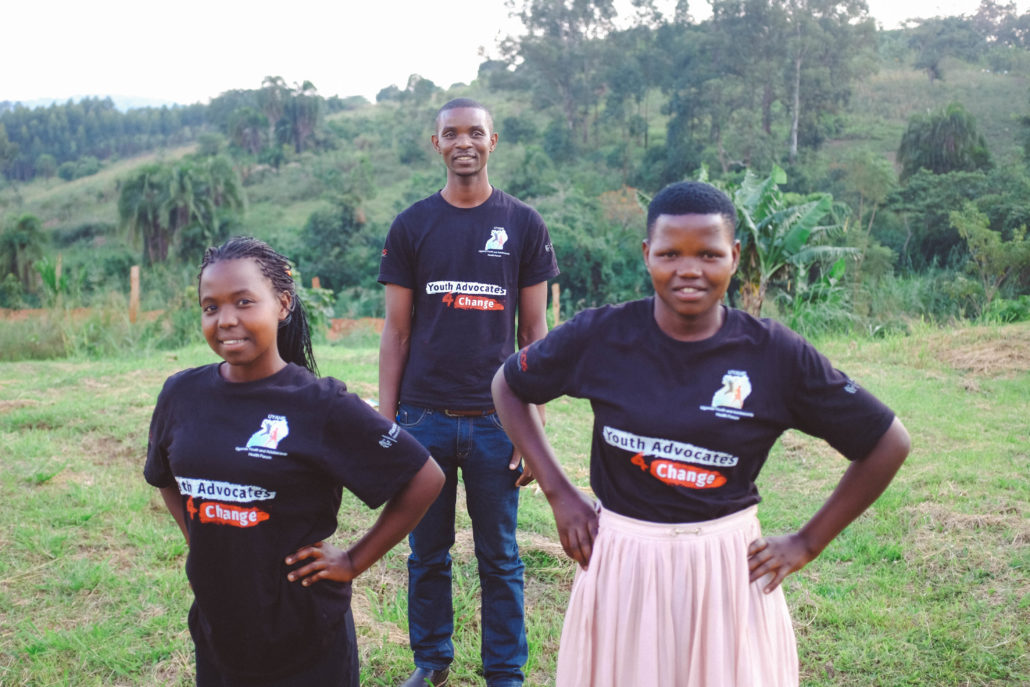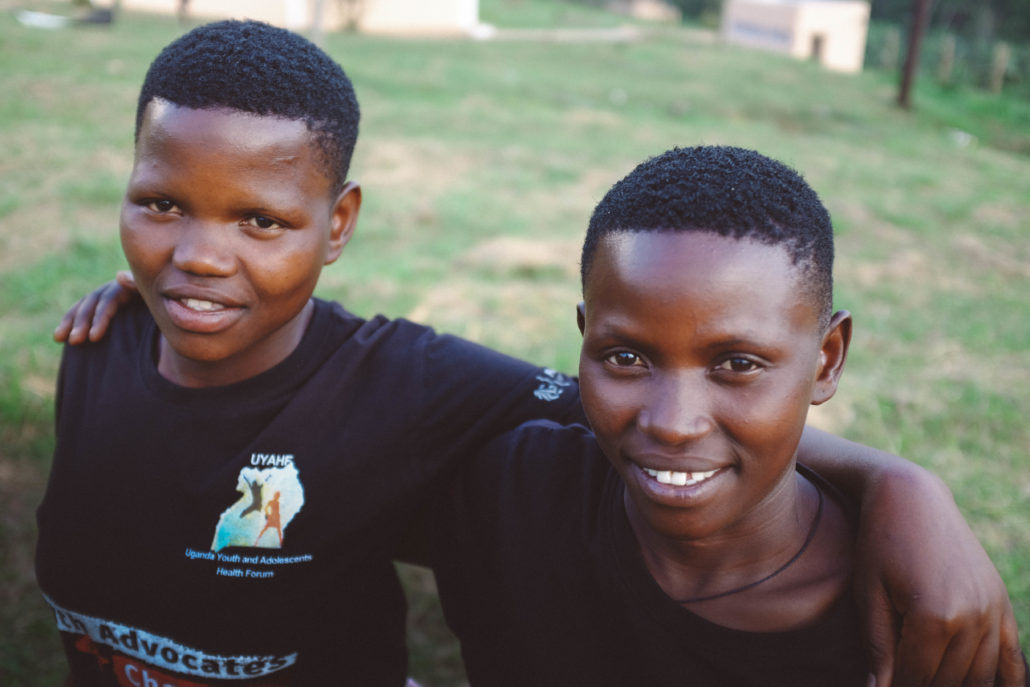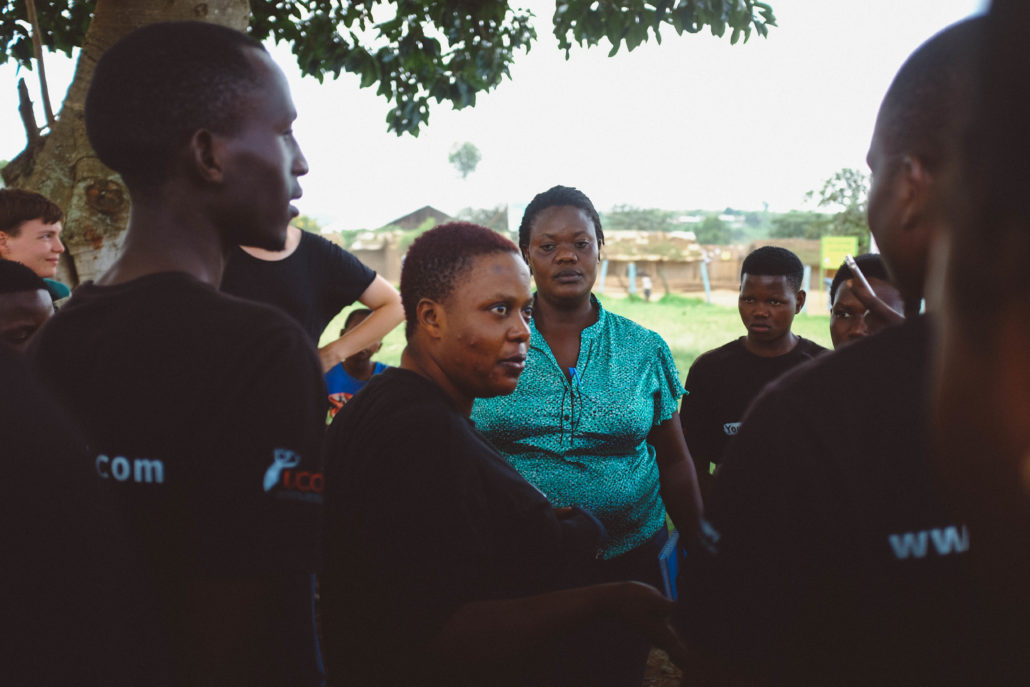A model that can be replicated
locally and internationally
Trained youngsters, whether or not refugees, named Youth Advocacy Change Champions, are key actors for the Uganda Youth and Adolescents Health Forum (UYAHF) to generate social change. They’re the driving force behind UYAHF’s current project to significantly reduce child marriages and teenage pregnancies in the Kyaka II refugee settlement in Uganda. Thanks to financial contributions from the Flemish government, UCOS supports this inspiring project. This summer the Change Champions received training in leadership, advocacy and research tools. Soon they’ll be taking on community action. “The goal is to have young people interact in a peer to peer engagement to change the mindsets of other refugees and actively campaign on sexual and reproductive health and rights (SRHR) in the settlement”, says Apio Winfred, programme officer Sexual Reproductive Health Rights and Gender Equality.
In a recently published assessment report, UYAHF articulates that, despite the progressive measures Uganda is taking to address teenage pregnancy and child marriage, the rates in the country are still alarmingly high. In Uganda, 1 in 4 girls aged 10-19 is pregnant or has already engaged in childbirth. The teenage pregnancy rate of 50% is especially high among the population in the western Kyegegwa district in and around the refugee settlement Kyaka II. These marriages and pregnancies rob girls’ opportunities to take control of their future and realise their full potential. Discrimination based on gender, economic status, region and orphan status makes girls more vulnerable to forced marriages and teenage pregnancies. Additionally, discriminatory cultural practices pose even greater challenges for girls who are already vulnerable due to their refugee status.
“If refugees arrive into the Kyaka II settlement they’re trained on child protection and are told all the laws of Uganda”, tells Winfred. But some families entering the Kyaka II refugee camp, whether or not driven by harmful cultural practices, still urge their daughters to get married at an early age as a means to increase the parent’s income through dowry. Likewise, girls who lack basic needs in life are forced to seek protection and support from men that later take advantage of the situation, in some cases leading to sexual violence. “Child marriages are becoming normalised in the Kyaka II community which makes it a difficult matter to address”, explains Winfred.
For UYAHF, the most important thing to do is to change the attitudes of young refugees towards child marriages and teenage pregnancies so they understand that these practices have negative consequences for the girl involved. “Of course it will be a long term process that will involve a multisectoral approach with the police, partner organisations and the camp management as well”, clarifies Winfred. “The great thing is, if you visit the camp and talk to mothers, you can see it’s something that they want to change.” Key of UYAHF’s project are the Youth Advocacy Change Champions, 20 young people who will be the voices and faces of the project and who work to generate social change. “They are trained in leadership, advocacy, research tools and capacity and skill building on how to speak to fellow refugees. The idea is to have a peer to peer engagement and interaction to change the mindsets of other refugees and campaign actively on SRHR and sexual violence.”
Through the 3 year project UYAHF aims to reduce child marriage and teenage pregnancy exponentially. Winfred: “We will also create a youth centre inside the refugee camp where youngsters will be able to access correct information and services.” Stories of young girls and boys getting in touch with the project will be documented by the Change Champions. “Normally we rely a lot on data that we find in reports written by other organisations,” tells Winfred. “Now we want to do it differently: we want to put the girls’ stories at the centre. In this way another young person from any other part of the world can discover their story and be part of their experience.”
The Change Champions will be the intermediaries to give a face to the numbers: they will share their stories and goals by animations and creative storytelling methods. “We know that one of the many reasons why there isn’t priority towards addressing adolescents health in the settlement is because the girls’ stories are not being told”, says Winfred. “So we do not only want to research what is happening, we also want to generate a long lasting impact.” These inspiring stories of dynamic youngsters will be shared internationally.
That’s where UCOS’ CHanGEmakers come into play. During their research trip to Uganda last July they made a field trip together with UYAHF to the Kyaka II settlement. They interacted, shared, learned, dialogued and witnessed the work done by the 20 Youth Advocacy Change Champions. Michelle Geerardyn, one of UCOS’ CHanGEmakers, said it was very exciting to see the work the Change Champions accomplished in such a short time period. “We had long talks with the Change Champions and were very curious about their motivation, their opinion about the situation in the district and the reason that brought them there.” According to Michelle the peer to peer approach can be a very powerful method: “Certainly for young people, I think this can be a very effective way to pass on knowledge.”
At the end of the year UCOS’ CHanGEmakers will organise a campaign in Belgium about inspiring organisations and individuals working towards safe access to sexual reproductive health and rights (SRHR) in migration and refugee contexts in Uganda, Morocco, Lebanon and Belgium.
More information?
- Read the full report from the Uganda Youth and Adolescents Health Forum (UYAHF)
- More information about UYAHF’s Youth Advocacy Change Champions
- Follow UCOS’ Instagram account to stay informed about our CHanGE stories and campaign
UYAHF’s Youth Advocacy Change Champions, pictures taken by © UCOS’ CHanGEmakers 2019, team Uganda


